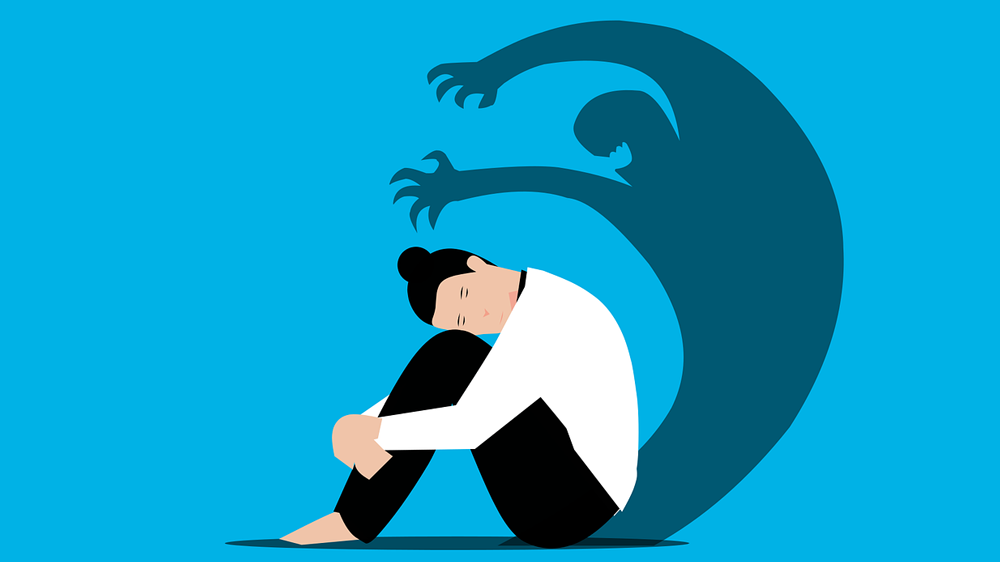Dealing With Anxiety

Anxiety is a common experience that can affect all of us at some point in our lives. Anxiety can manifest in various forms and intensities at different stages of life or our life experiences. While it can be a normal and sometimes beneficial response to stress or danger, chronic anxiety can interfere with daily activities and overall well-being. Understanding anxiety and developing effective strategies to manage it is crucial for maintaining your mental health. At Wounded Healer we explore the nature of anxiety, its effects, and practical approaches to dealing with it.
What is Anxiety?
Anxiety is a complex emotional response characterised by feelings of worry, nervousness, or fear. It is often a reaction to a perceived threat or challenge, whether real or imagined. While occasional anxiety is a part of life, chronic anxiety can lead to significant distress and dysfunction. Common anxiety disorders include generalised anxiety disorder (GAD), panic disorder, social anxiety disorder, and specific phobias.
Anxiety Symptoms
Anxiety can manifest through a range of physical and psychological symptoms, including:
Physical symptoms: Increased heart rate, sweating, trembling, dizziness, shortness of breath, and gastrointestinal issues.
Psychological symptoms: Persistent worry, restlessness, irritability, difficulty concentrating, and insomnia.
Causes of Anxiety
The causes of anxiety can involve a combination of genetic, environmental, psychological, and biological factors. Stressful life events, trauma, a family history of anxiety disorders, and certain medical conditions can contribute to the development of anxiety.
10 Strategies for Dealing with Anxiety
Effectively managing anxiety involves a combination of self-help strategies, professional support, and, in some cases, medication. Here are several evidence-based approaches to dealing with anxiety:
1. Mindfulness and Meditation
Mindfulness and meditation are powerful tools for managing anxiety. Mindfulness involves staying present and fully engaging with the current moment, which can help break the cycle of anxious thoughts. Techniques such as mindful breathing, body scan meditation, and guided imagery can reduce stress and promote relaxation.
2. Cognitive-Behavioral Therapy (CBT)
CBT is a well-established therapeutic approach for treating anxiety disorders. It focuses on identifying and challenging negative thought patterns and behaviors that contribute to anxiety. Through CBT, individuals learn to replace irrational fears with more realistic and positive thoughts, thereby reducing anxiety.
3. Physical Activity
Regular physical activity has been shown to significantly reduce anxiety levels. Exercise stimulates the production of endorphins, which are natural mood lifters. Activities such as walking, running, yoga, and strength training can improve mental health and provide a healthy outlet for stress.
4. Breathing Exercises
Controlled breathing exercises can help calm the mind and body. Techniques such as deep breathing, diaphragmatic breathing, and the 4-7-8 method (inhaling for 4 seconds, holding the breath for 7 seconds, and exhaling for 8 seconds) can reduce immediate feelings of anxiety and promote relaxation.
5. Healthy Lifestyle Choices
Maintaining a healthy lifestyle can have a positive impact on anxiety levels. This includes:
Balanced diet: Eating a well-balanced diet rich in fruits, vegetables, whole grains, and lean proteins can support mental health.
Adequate sleep: Ensuring sufficient and quality sleep is crucial for emotional regulation and stress management.
Limiting caffeine and alcohol: Both substances can exacerbate anxiety symptoms, so it’s important to consume them in moderation or avoid them altogether.
6. Social Support
Building and maintaining strong social connections can provide emotional support and reduce feelings of isolation. Talking to friends, family members, or joining support groups can help individuals share their experiences and gain perspective on their anxiety.
7. Professional Help
Seeking professional help is essential for managing severe anxiety. Mental health professionals, such as therapists and counselors, can provide tailored treatment plans and support. In some cases, medication prescribed by a psychiatrist may be necessary to manage symptoms effectively.
8. Relaxation Techniques
Incorporating relaxation techniques into daily routines can help manage anxiety. Techniques such as progressive muscle relaxation, aromatherapy, and listening to calming music can create a sense of calm and reduce stress.
9. Journaling
Writing about one’s thoughts and feelings in a journal can be a therapeutic way to process emotions. Journaling allows individuals to express their worries and fears, identify patterns, and reflect on their progress over time.
10. Limiting Exposure to Stressors
Identifying and limiting exposure to known stressors can help manage anxiety. This may involve setting boundaries at work, reducing time spent on social media, or avoiding situations that trigger anxiety.
Anxiety Medication
For some individuals, medication may be necessary to manage anxiety symptoms. Commonly prescribed medications include:
Antidepressants: Such as selective serotonin reuptake inhibitors (SSRIs) and serotonin-norepinephrine reuptake inhibitors (SNRIs).
Benzodiazepines: Effective for short-term relief of severe anxiety but not recommended for long-term use due to the risk of dependency.
Beta-blockers: Typically used for heart conditions but can help manage physical symptoms of anxiety, such as rapid heart rate.
Medication should always be used under the guidance of a healthcare professional and in conjunction with other therapeutic approaches.
Dealing with anxiety requires a combination of self-care, professional support, and sometimes medication. By understanding the nature of anxiety and implementing effective strategies, individuals can reduce its impact on their lives and improve their overall well-being. It’s important to remember that managing anxiety is a journey, and seeking help is a sign of strength, not weakness. Learn more about our anxiety therapy at Wounded Healer.
If you would like speak to a professional and get help for anxiety, contact Wounded Healer today.
